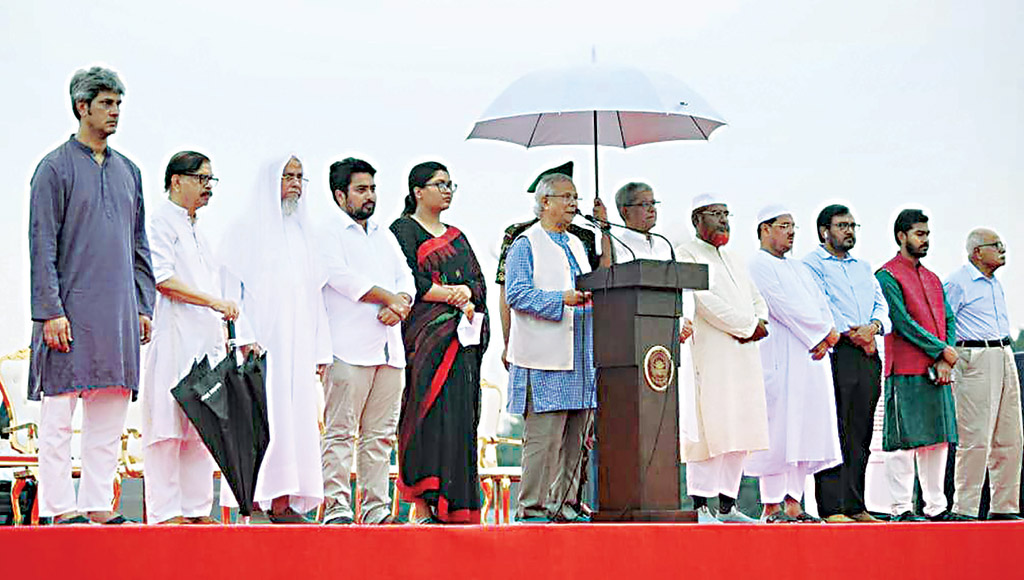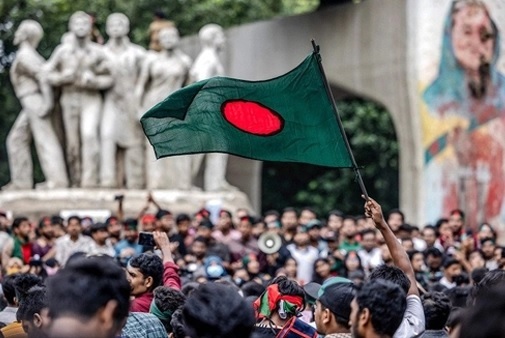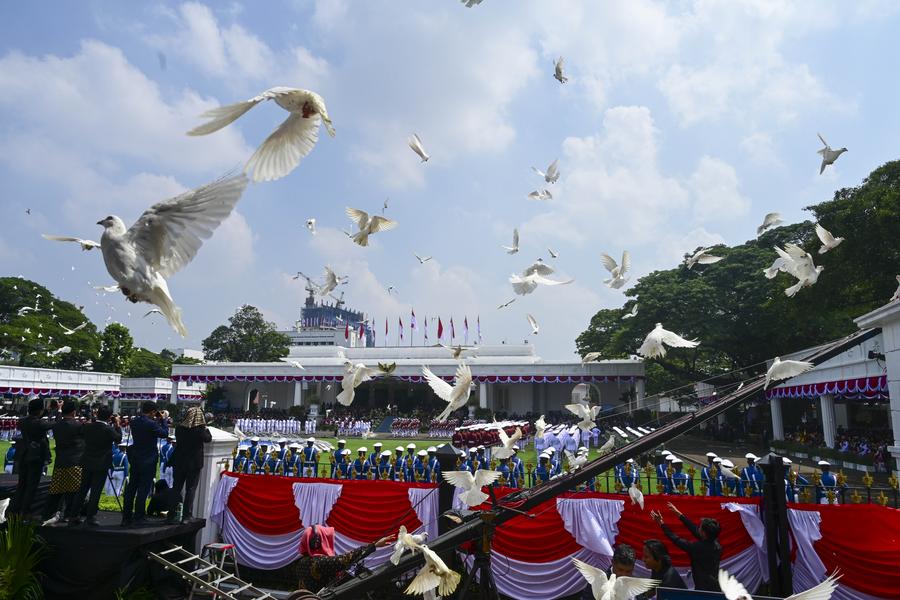Bangladesh 2024 Uprising Anniversary: July Declaration & 2026 Election Roadmap
Bangladesh vows democratic renewal on first anniversary of Hasina’s overthrow

Dhaka, August 5, 2025 – Thousands of jubilant Bangladeshis filled the streets of Dhaka to mark the first anniversary of the 2024 student uprising, which led to the fall of Sheikh Hasina. The interim government, led by Nobel Laureate Muhammad Yunus, unveiled the July Declaration and a roadmap for democratic reforms, including February 2026 elections.
Nationwide Celebrations of Bangladesh’s “Second Liberation”
Supporters referred to the anniversary as the country’s “Second Liberation”, celebrating the historic movement that reshaped the nation.
- Rallies, concerts, and interfaith prayers energized the capital.
- Citizens commemorated the bravery of students and activists who demanded change.
The highlight of the day came when Muhammad Yunus publicly read the July Declaration, aiming to officially recognize the 2024 uprising in the constitution.
“The people of Bangladesh express their desire that the student‑people uprising of 2024 will get proper state and constitutional recognition,” said Yunus.
July Declaration: A Landmark in Bangladesh Democratic Reforms

The July Declaration is a historic move toward Bangladesh democratic reforms, promising:
- Constitutional recognition of the 2024 uprising
- Safeguards against authoritarianism
- A foundation for long‑term institutional change
By embedding the uprising into the reformed constitution, the interim government aims to ensure that no future government can become fascist again.
February 2026 Elections: A Roadmap for the Future
In his national address, Muhammad Yunus confirmed that the Election Commission will organize February 2026 elections, giving Bangladesh a clear roadmap to democracy.
- Bangladesh Nationalist Party (BNP) welcomed the timeline.
- The Awami League, though suspended and facing legal trials, might still participate in elections under fair conditions.
This step reflects the government’s commitment to restoring electoral legitimacy and ending political uncertainty.
Mixed Emotions Among Citizens
Public reaction to the anniversary was a blend of celebration and caution:
- Optimists saw the July Declaration as a historic step toward democracy.
- Skeptics warned that without real institutional reforms, progress may remain symbolic.
Security was tight, with armored vehicles patrolling Dhaka to deter any attempts at disruption.
Sheikh Hasina’s Response from Exile
From abroad, Sheikh Hasina released an open letter claiming she had never resigned as prime minister and urging unity:
“Bangladesh has overcome adversity before, and we will rise again… more united and determined to build a democracy that truly serves its people.”
Her statement highlights the deep political divisions that remain despite the celebrations.
Key Takeaways for Bangladesh’s Future
| Highlight | Significance |
|---|---|
| Bangladesh student uprising 2024 | Sparked the fall of Sheikh Hasina |
| July Declaration | Aims for constitutional recognition and reforms |
| Bangladesh democratic reforms | Designed to prevent future authoritarianism |
| Sheikh Hasina fall | Marked the end of a long‑standing political era |
| February 2026 elections | Paves the way for democratic transition |




